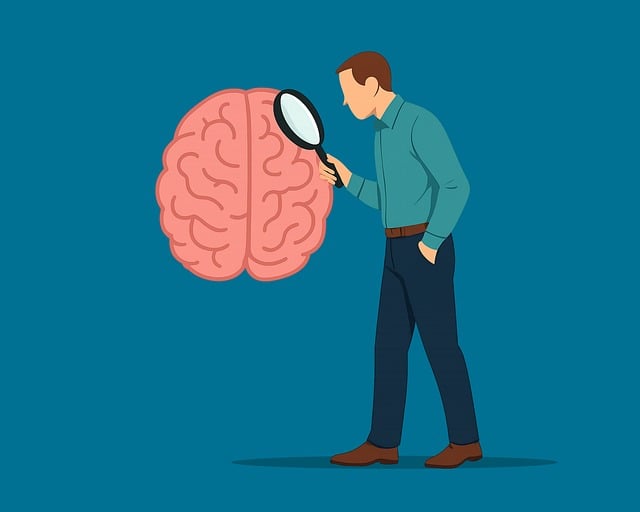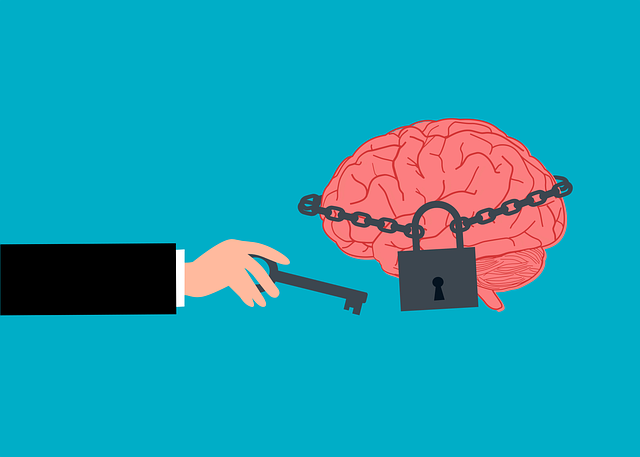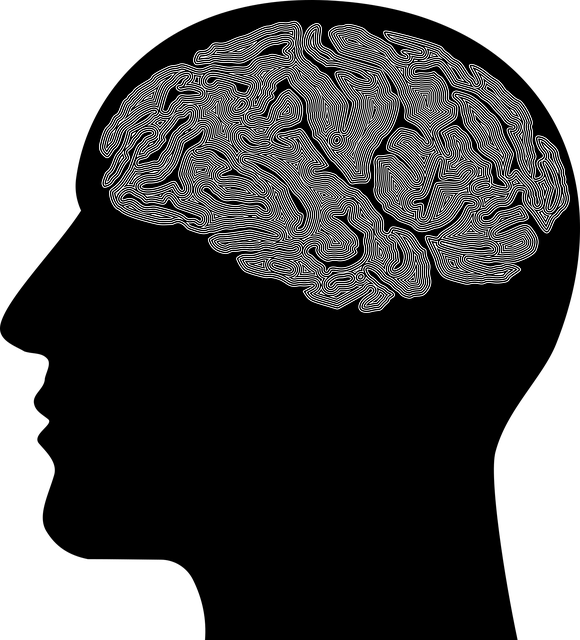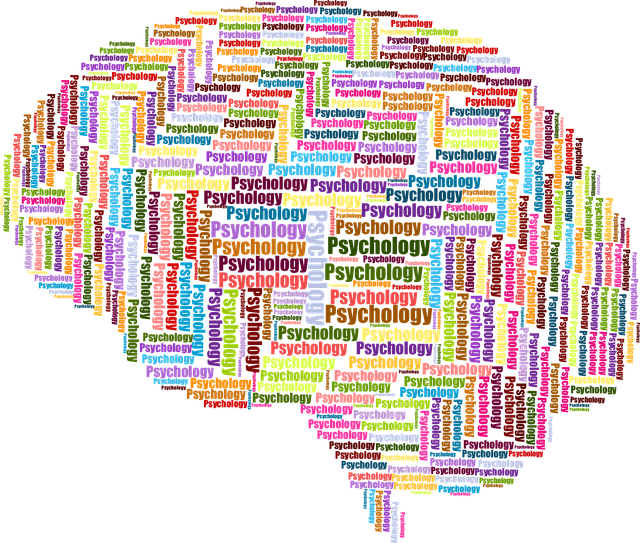Developing a comprehensive mental health education program in Boulder begins with understanding local needs through community engagement, surveys, and expert consultations. Setting clear objectives like raising awareness of depression prevention and reducing stigma is vital. The curriculum should include evidence-based content on stress management, mindfulness, emotional intelligence, and trauma, using interactive modules and case studies for active learning. Diversifying delivery methods with workshops, online courses, and webinars increases accessibility. Incorporating mental wellness coaching principles and culturally sensitive materials fosters inclusivity. Regular evaluations using KPIs track progress and refine the program based on feedback from participants and professionals to meet evolving needs, ensuring Boulder Mental Health Evaluations Therapy's maximum impact.
In today’s fast-paced world, mental health education is more crucial than ever. This comprehensive guide explores the design of an effective program aimed at enhancing community well-being. By assessing local needs through surveys, focus groups, and expert consultations, we identify target audiences and priority areas such as stress management, anxiety, and trauma. The article delves into evidence-based curriculum development, implementation strategies, and continuous improvement techniques, ensuring a tailored and engaging experience. Incorporating online and in-person methods, diverse teaching materials, and cultural sensitivity, this program design aims to revolutionize mental health evaluations and therapy in Boulder and beyond.
- Assessing the Need and Setting Goals: Identifying the target audience and community mental health concerns through surveys, focus groups, and expert consultations. Defining program objectives and expected outcomes.
- Curriculum Development: Creating evidence-based learning modules focusing on topics like stress management, mindfulness, emotional intelligence, anxiety disorders, depression, and trauma. Incorporating interactive activities, case studies, and peer discussions.
- Implementation Strategies: Choosing delivery methods (in-person workshops, online courses, or a combination) considering accessibility and engagement. Designing flexible scheduling options, promoting diversity and inclusivity in teaching materials, and ensuring cultural sensitivity.
- Evaluation and Continuous Improvement: Establishing key performance indicators (KPIs) to measure program success. Implementing feedback mechanisms through participant evaluations, focus groups, and regular reviews by mental health professionals. Utilizing insights for curriculum refinement and enhanced program impact.
Assessing the Need and Setting Goals: Identifying the target audience and community mental health concerns through surveys, focus groups, and expert consultations. Defining program objectives and expected outcomes.

Identifying the need for a mental health education program is a crucial first step. This involves engaging with the community through surveys, focus groups, and consultations with local mental health experts to understand pressing concerns. For instance, a survey might reveal high rates of stress and anxiety among college students in Boulder, while focus groups could highlight a lack of awareness about available therapy options and stigma surrounding mental illness. These insights are invaluable for tailoring program content and ensuring relevance.
Defining clear objectives and expected outcomes is the next essential step. Program goals could include raising awareness about depression prevention strategies, promoting crisis intervention guidance, and reducing stigma associated with mental illness. By setting specific, measurable targets, the initiative can track its impact effectively. For example, increasing the number of students who complete a mental health evaluation by 20% within one year or fostering open conversations about mental illness through community workshops could be tangible outcomes.
Curriculum Development: Creating evidence-based learning modules focusing on topics like stress management, mindfulness, emotional intelligence, anxiety disorders, depression, and trauma. Incorporating interactive activities, case studies, and peer discussions.

In designing a comprehensive mental health education program, curriculum development is a foundational step that ensures the effectiveness and relevance of learning modules. The key lies in crafting evidence-based content focusing on pressing mental health concerns such as stress management, mindfulness, emotional intelligence, anxiety disorders, depression, and trauma. This involves integrating research from reputable sources to provide accurate information backed by scientific rigor. Each module should be meticulously designed with interactive elements like case studies and peer discussions to foster active learning. By engaging participants in practical scenarios and encouraging reflective dialogue, the program enhances understanding and promotes skill development.
Furthermore, incorporating mental wellness coaching principles can significantly enrich the educational experience. This includes teaching evidence-based techniques for anxiety relief and emotional regulation, empowering individuals with tools to navigate life’s challenges more effectively. The ultimate goal is to create a supportive environment that encourages open conversations about mental health, breaking down stigma and fostering resilience through knowledge and shared experiences. Such an approach aligns with the broader objectives of Boulder Mental Health Evaluations and Therapy in promoting holistic well-being.
Implementation Strategies: Choosing delivery methods (in-person workshops, online courses, or a combination) considering accessibility and engagement. Designing flexible scheduling options, promoting diversity and inclusivity in teaching materials, and ensuring cultural sensitivity.

When designing a mental health education program, the choice of delivery methods is crucial for maximizing accessibility and engagement. Offering a combination of in-person workshops, online courses, and interactive webinars can cater to diverse learning preferences and constraints. For instance, live sessions facilitate real-time interactions and discussions, ideal for sharing personal experiences and receiving immediate feedback. Conversely, online platforms provide flexibility, allowing learners to study at their own pace, a particularly appealing option for those with busy schedules or geographical limitations. Boulder Mental Health Evaluations and Therapy can thus be effectively integrated into these formats.
Ensuring inclusivity involves several strategic considerations. First, flexible scheduling options must accommodate different time zones and commitments, such as offering recordings of sessions or providing alternative learning materials. Next, teaching materials should actively promote diversity and cultural sensitivity, incorporating perspectives from various backgrounds to prevent stereotypes and biases. This commitment extends to providing Self-Esteem Improvement resources tailored for diverse audiences, alongside Mental Wellness Journaling Exercise Guidance that respects personal boundaries and beliefs. Additionally, emphasizing Mind Over Matter Principles can empower individuals with coping strategies, fostering resilience regardless of their cultural backgrounds.
Evaluation and Continuous Improvement: Establishing key performance indicators (KPIs) to measure program success. Implementing feedback mechanisms through participant evaluations, focus groups, and regular reviews by mental health professionals. Utilizing insights for curriculum refinement and enhanced program impact.

Mental health education programs must incorporate evaluation and continuous improvement to ensure their effectiveness and adaptability. Establishing key performance indicators (KPIs) provides a structured framework to measure program success. By setting clear goals, such as improved self-awareness, enhanced emotional regulation, and increased resilience building, organizers can track progress and identify areas for refinement. Regular Boulder Mental Health Evaluations play a pivotal role in this process, offering valuable insights into participant experiences and outcomes.
Implementing feedback mechanisms is integral to the success of these programs. Participant evaluations, focus groups, and reviews by mental health professionals allow for a holistic understanding of the program’s impact. This collective feedback serves as a powerful tool for curriculum refinement, ensuring that the program remains responsive to the evolving needs of its participants. By integrating these insights, organizers can optimize the program’s structure, content, and delivery methods, ultimately enhancing its overall impact and fostering healthier, more resilient individuals.
Mental health education programs, such as those designed with a focus on Boulder’s community needs, are transformative tools. By systematically assessing local mental health concerns through surveys, focus groups, and expert consultations, these programs can set clear goals and create relevant, evidence-based curricula. Implementing interactive learning modules, flexible delivery methods, and culturally sensitive materials ensures engagement and accessibility. Continuous evaluation using KPIs, participant feedback, and professional reviews allows for ongoing refinement, ensuring the program’s impact is maximized, much like a tailored therapy session for the mind. Incorporating these strategies fosters a community equipped to manage mental health effectively, ultimately improving overall well-being in Boulder and beyond.










